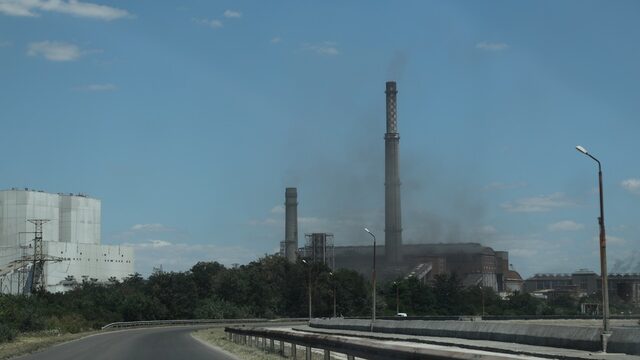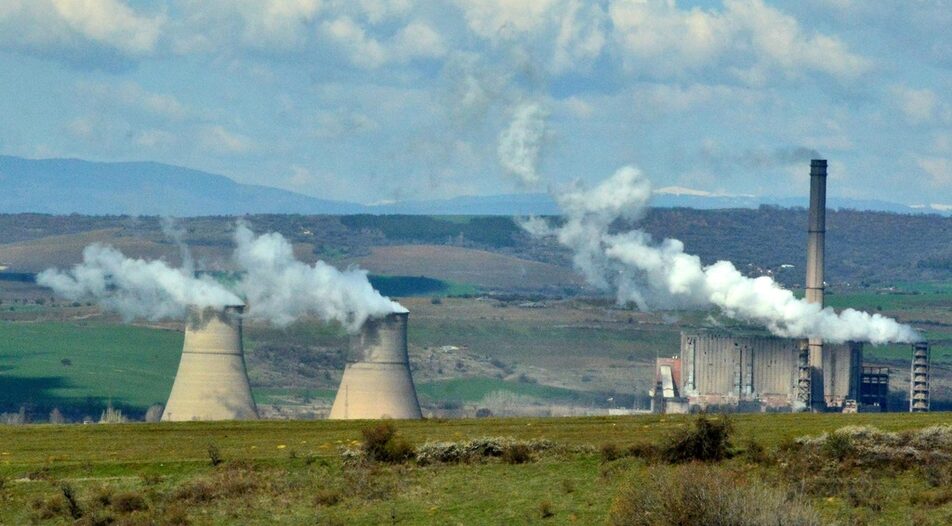By the end of July, Bulgaria has to present to the European Commission its final proposals for changes to the Recovery plan in order to have a chance of receiving more EU money. In January, the previous parliament obliged the government to start negotiations with Brussels on some of the plan's parameters. A key demand was to drop the EU requirement requesting curtailment of the operation of coal-fired power plants (TPPs) by 2026.
The inauguration of the Denkov cabinet has seen a step forward in the negotiation, as a draft amendment to the recovery plan produced by the Ministry of Energy emerged unofficially last week. However, in the document seen by Capital weekly, there are very different things than those asked for by the last National Assembly.
For example, instead of dropping the commitment to coal plants, the Energy Ministry proposes reducing the operation of the thermal power plants in the Maritsa East complex and suspending the operation of Bobov Dol and Brickel (although the two are not specifically mentioned). Also included is the elimination of coal as a fuel in district heating by 2030, which could leave people in cities such as Pernik, Ruse and Sliven without heating.
This is at odds with the decision voted by MPs in early January, which aimed at fully preserving coal-fired capacity. This is understandable, as the vote was taken under pressure of protests and before the upcoming parliamentary elections, which prompted the MPs to indulge in populism. However, some questions remain.
The end of coal-fired power plants
At the beginning of January, the National Assembly voted overwhelmingly to oblige the Council of Ministers to renegotiate the Recovery and Sustainability Plan in its Energy section. According to the decision, the commitment to reduce carbon emissions from electricity generation by 40% compared to the 2019 baseline will be dropped from the plan. This relates to the scheduled annual greenhouse gas reductions from the state-owned Maritsa East 2 thermal power plant, the US-based AES Galabovo and ContourGlobal, as well as the TPPs Maritsa 3, Brickel, Republic in Pernik, Ruse-East and Toplofikaciya Sliven. All reforms and investments in the plan related to this objective are also planned to be dropped.
However, the draft document under discussion and to be sent to the Commission states that Bulgaria will aim to achieve an indicative reduction in CO2 emissions of 30% instead of 40% by the end of 2025 compared to 2019. This, in turn, is to be achieved through flexible operation (e.g. operating mainly in winter) of the Maritsa East 2, US AES Galabovo and ContourGlobal plants, as well as phased decommissioning of technologically obsolete plants with a total gross capacity of 800 mW, which are explicitly stated to be different from the above three, which will operate "flexibly". The plants that are supposed to be decommissioned are not mentioned explicitly, but are likely the Bobov Dol, Brickel and Maritsa 3 power plants associated with mogul Hristo Kovachki.
Framed this way, the decision may turn out to contravene EU policy against discrimination, distortion of free competition and support for state-owned enterprises. In this regard, there is also the open question of what will happen to the so-called American plants after their power purchase agreements expire. The one with ContourGlobal expires in April 2024, and that of AES Galabovo is until 2026. They have a total capacity of 1500 MW and combined with the closure of another 800 MW the impact of their potential closure to the country's power system may be very different.
TPPs without coal?
Something quite new in the draft proposal is the phasing out of coal in central heating. Most of the key coal-fired district heating plants, such as those in Ruse, Pernik and Sliven, are also associated with Hristo Kovacki's group. But the bigger issue here is that, unlike the electricity-producing TPPS, their activities are directly linked to the wellbeing of households. If they are forbidden from running on coal after 2030 and no investment is made in alternative fuel, this would mean that thousands of people in these cities would be left without heating and hot water.

However, according to a new proposal by the current government in June, funding will be made available to remove coal from central heating. In this case, EUR 100 million is proposed to come from the Electricity System Security Fund and another EUR 200 million from the EU's Just Transition Fund, which has not worked in Bulgaria because of the lack of territorial plans for coal regions. It is also not clear how the funds from the latter instrument can be channeled, for example, to Toplofikatsiya Ruse, which is outside the transition regions.
With regard to Sofia district heating, which is in the most critical financial situation, there is also a new proposal from June. According to it, EUR 150 million from the EIP should be directed towards gas turbines with a capacity of 300 megawatts. In addition, 6 more small gas turbines with a capacity of 20 megawatts have been written in at various locations, without saying which they are and whether they would meet the heating and hot water needs of the cities concerned.
Even if all these changes to the energy strategy are agreed upon and approved quickly, there is no guarantee that the government will be able to receive a new tranche of the recovery plan by the end of this year. According to the schedule, Bulgaria is entitled to a payment of EUR 724 million, but this depends on a significant number of reforms that Parliament and the ministries need to implement before that.
- In addition to the proposed coal reforms, the state will also commit to more renewable energy capacity, raising the bar from the 3500 MW of solar and wind power envisaged in the recovery plan, to 5000 MW by 2025, of which 2000 MW will necessarily be on the territory of the Maritsa East complex;
- Another major reform, which parliament demanded, is the big project for 6000 MWh of batteries, which Assen Vassilev launched in the previous regular government, to be transformed into a grant for businesses and households to cover 50% of their battery costs. If the measure is implemented, BGN 1.5 billion could be invested in the battery sector when the beneficiaries cover their 50% of the funding;
- The money for geothermal sources of energy is dropped from BGN 200 million to only BGN 85 million. They will be directed to a funding scheme of up to 50% for projects of individuals and legal entities, as well as for the establishment of a geothermal laboratory;
- The government will also ask Brussels to drop the obligation that Bulgartransgaz and the Electricity System Operator be removed from the structure of Bulgarian Energy Holding (BEH). Instead, it says it will make a strategy to decarbonise BEH in partnership with institutions such as the EBRD, EIB and World Bank;
- A new proposal made by the current government is to channel 100 million euro from the Electricity System Security Fund to build a 1,600 megawatt pumped storage hydropower plant (PSHP). This money would likely go towards the repair of the Chaira PSHP.
By the end of July, Bulgaria has to present to the European Commission its final proposals for changes to the Recovery plan in order to have a chance of receiving more EU money. In January, the previous parliament obliged the government to start negotiations with Brussels on some of the plan's parameters. A key demand was to drop the EU requirement requesting curtailment of the operation of coal-fired power plants (TPPs) by 2026.
The inauguration of the Denkov cabinet has seen a step forward in the negotiation, as a draft amendment to the recovery plan produced by the Ministry of Energy emerged unofficially last week. However, in the document seen by Capital weekly, there are very different things than those asked for by the last National Assembly.












